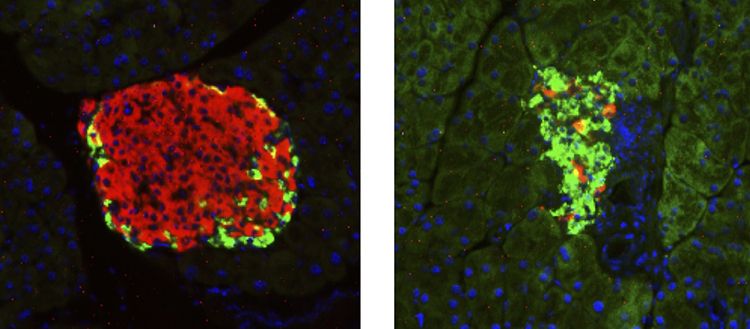Insulin, a hormone essential for regulating blood sugar and lipids, is normally produced by pancreatic β cells. In many people with diabetes, however, pancreatic cells are not (or no longer) functional, causing a chronic and potentially fatal insulin deficiency that can only be controlled through daily insulin injections. However, this approach has serious adverse effects, including an increased risk of life-threatening hypoglycaemia, and it does not restore metabolic balance. In order to improve therapy, researchers at the University of Geneva (UNIGE), Switzerland, have identified a protein called S100A9 which, under certain conditions, seems to act as a blood sugar and lipid regulator while avoiding the most harmful side effects of insulin. This discovery, that can be read in Nature Communications, paves the way for better treatment of diabetes and could significantly improve the quality of life for tens of millions of people affected by insulin deficiency.
Today, insulin injections are essential for the survival of patients with type 1 diabetes or a severe form of type 2 diabetes. However, this treatment is not without risk: overdose can trigger hypoglycaemia, i.e. a drop in blood glucose levels that can lead to coma or even death. But underdosed, it can lead to equally dangerous hyperglycaemia. In addition, insulin is involved in the control of ketones, elements that are produced when the liver breaks down lipids in the absence of sufficient glucose reserves, which become toxic in too large quantities. In addition, long-term insulin treatments cause excess fat and cholesterol in the blood and therefore increases the risk of cardiovascular disease.
As early as 2010, Roberto Coppari’s team, a professor at the Diabetes Centre of the UNIGE Faculty of Medicine, highlighted the gluco- and lipid-regulatory properties of leptin, a hormone involved in hunger control. “However, leptin has proved difficult to use pharmacologically in human beings due to the development of leptin resistance,” says Roberto Coppari. “In order to overcome this problem, we shifted our focus on the metabolic mechanisms triggered by leptin rather than on the hormone itself.”
